Coronavirus restrictions in most of Italy that closed restaurants, shops and museums over the Easter period will be extended through April, the government said today.
But "an easing of measures" could be decided if the trend of the epidemic and the vaccination roll-out warrant it, according to the decree approved late today by the government of Prime Minister Mario Draghi.
Under the new decree, schools for lower grades will remain open, and it makes vaccines for healthcare workers compulsory.
Anyone refusing to be vaccinated can be reassigned, where possible, in roles away from the public. If not, their pay will be suspended.
Two weeks ago, on 15 March, new restrictions went into effect on three-quarters of the country. Health Minister Roberto Speranza said then that the clampdown might allow a relaxation of measures in the second half of spring.
Italy recorded 467 new deaths today linked to Covid-19 and 23,904 new infections. Nearly 110,000 people have died in Italy since the coronavirus hit the country over a year ago.
The government has already tried to ensure that Italians do not congregate or travel during Easter, with the entire country considered a high-risk "red zone" over the weekend of 3-5 April.
In a red zone, residents have to stay home except for work, health or other essential reasons.
Between 7 April through 30 April, all of Italy's regions will be considered either "red" or "orange" zones, with the latter having slightly looser restrictions.
For the moment, no regions are considered "yellow", which would allow seated dining in restaurants until 6pm and more mobility for residents.
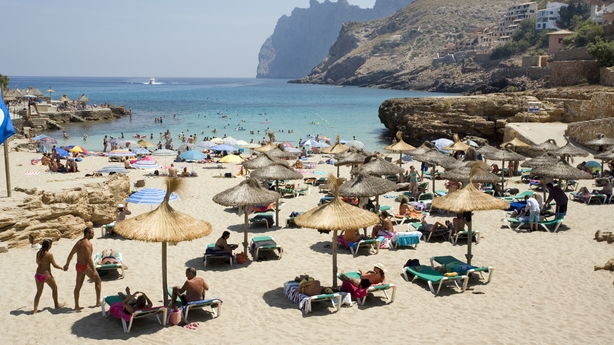
Spain tightens rules on masks
Spain has tightened its rules on face coverings, making them mandatory outdoors and in all public places, including beaches.
Masks have been obligatory since last May but only in places where it was not possible to maintain at least two metres physical distancing.
The new law came into effect today.
Spain has been hard-hit by the pandemic, having recorded over 75,000 deaths from nearly 3.3 million cases.
"It is important that citizens know that we have not reached a relaxation phase, and we cannot in any way afford to be reckless," government spokeswoman Maria Jesus Montero told a news conference.
Exceptions will continue to be made for people with medical conditions or respiratory problems or for those exercising outdoors.
So far some 2.6 million people in the nation of around 47 million have been fully vaccinated, mainly residents and workers in nursing homes who were given priority.
Spain's central government said it would file a legal challenge against a law passed by the northwestern region of Galicia making it mandatory to be vaccinated against Covid-19 and other diseases.
The law, which was approved in February, calls for fines of up to €3,000 for anyone who refuses to get a vaccine.
But Ms Montero said it "limited fundamental rights" and was a matter for national, not regional, legislation.
Meanwhile, health minister Carolina Darias said that Spain would extend the use of AstraZeneca's coronavirus vaccine to essential workers aged over 65 to cater for previously excluded groups.
She said the country would take delivery of one million doses of the jabs tomorrow and the government is on track to hit a target of vaccinating 70% of the population this summer.
Meanwhile, Spain expects digital vaccine certificates to ease travel within the European Union will be ready in June at the latest, according to foreign minister Arancha Gonzalez Laya.
Faced with a pandemic that has killed more than 900,000 people in Europe and pushed the continent into its deepest recession, EU leaders agreed last month to work on vaccine certificates to kick-start the tourism, which has been hit hard.
"We are in Brussels with a proposal made by the Commission to the European Parliament," Ms Gonzalez Laya told Onda Cero radio station, saying the parliament had agreed to fast track the certificates to ease travel in Europe.
The vaccine certificates would not prevent non-vaccinated people from travelling, she said, but people with the certificate would go through borders faster while others would have to go through all the existing controls.
Australia falls short of vaccines target
Australia will fall well short of its initial Covid-19 vaccination target, Prime Minister Scott Morrison has said and claimed European export restrictions were partly to blame.
Australia has been heralded globally as a pandemic success story, but it is one of the few wealthier nations to have an extremely limited vaccination roll-out.
So far, just 670,000 doses have been administered in Australia, according to official statistics, far below the initial plan to vaccinate four million people by the end of March.
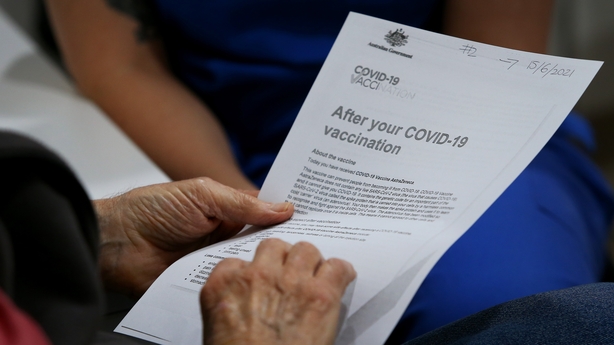
Mr Morrison said that target had been "dispensed with" months ago, and that delayed exports of three million doses from Europe were "obviously going to impact the early success".
"It's not a race," he said, accusing critics of "wanting to play politics with vaccine and distribution".
Critics have warned that Australia's slow vaccination rate risks new clusters emerging and an indefinite delay in reopening the country's borders.
Richard Holden, an economist at the University of New South Wales, said that Mr Morrison "has to say 'it's not a race'".
"Because if it was, we would have been lapped multiple times and be battling it out for 75th place," he tweeted.
"Of course it's a race-against the virus and outbreaks, and for economic recovery."
Early in the pandemic, Mr Morrison had boasted that Australia would be "at the front of the queue" for vaccines after a number of deals with pharmaceutical firms AstraZeneca, Pfizer and Novavax.
His government had set an initial target of having all adults fully vaccinated by October.
Today, Mr Morrison indicated that the target had changed, saying "we are on track for our first dose for everyone by the end of October".
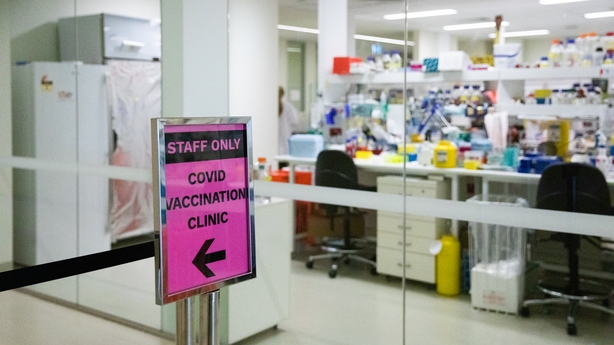
Australia has largely avoided widespread coronavirus transmission but has regularly had to scramble to contain outbreaks originating from hospitals and hotel quarantine for overseas arrivals.
Around two million people are currently in lockdown in greater Brisbane - Australia's third-largest city - after around a dozen cases were detected.
The country has reported around 30,000 Covid-19 cases in total out of a population of 25 million since the pandemic began - including those detected in quarantine for overseas travellers.
Authorities are hoping that local production of Oxford/AstraZeneca vaccines will now kick up a gear and provide around one million doses a week.
China under pressure after WHO chief revives lab leak theory
China faced mounting pressure today over the investigation into the origins of Covid-19, after the World Health Organization chief revived a theory it may have leaked from a Chinese lab and the US led concerns over data access.
A report by WHO and Chinese experts released yesterday had judged the lab-leak hypothesis highly unlikely, saying the virus behind Covid-19 had probably jumped from bats to humans via an intermediary animal.
The report also initially appeared to back China's firm rejection of theories that the pandemic may have been triggered by a leak from a virology lab in Wuhan, the central Chinese city where the virus first emerged.
But WHO chief Teodros Ghebreyesus reopened the lab leak theory, as he raised concerns about the level of access China provided to the experts during their visit to Wuhan in January.
"In my discussions with the team, they expressed the difficulties they encountered in accessing raw data," Dr Tedros said.
He called for "timely and comprehensive data sharing" in future investigations.
Dr Tedros also said that although the experts concluded the laboratory leak was the "least likely" hypotheses, this theory needed to be probed further.
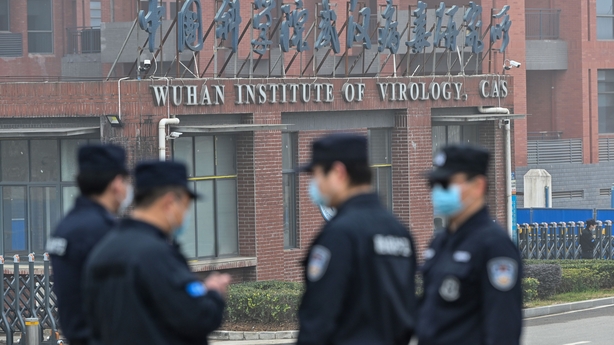
"I do not believe that this assessment was extensive enough," Dr Tedros said of the possibility of a leak.
"This requires further investigation, potentially with additional missions involving specialist experts, which I am ready to deploy," and emphasised that no theory had yet been ruled out.
The pandemic has killed nearly 2.8 million people worldwide since it first emerged in Wuhan in late 2019.
The United States released a statement with 13 of its allies - Britain, Japan and Australia among them - saying the inquiry lacked the data and samples it needed.
China insists it was transparent with the investigation and said it provided open access to wet markets, labs, patients and data from the first weeks of the virus, admonishing critics for "politicising" a global health crisis.
On the laboratory accident hypothesis, the head of the investigation team, Danish scientist Ben Embarek told reporters that Chinese lab staff had acknowledged they initially feared a leak.
"They all went back to their records... but nobody could find any trace of something similar to this virus in their records or their samples," he said.
That said, Dr Embarek added: "We haven't done a full investigation or audit of any of the labs."
Russia registers 'world's first' Covid vaccine for animals
Russia has announced that it had registered what it said was the world's first coronavirus vaccine for animals, describing the step as important to disrupting mutations.
It said mass production of the vaccine could begin in April.
The agriculture oversight agency Rosselkhoznadzor said in a statement that the vaccine called Carnivak-Cov had been tested beginning October on dogs, cats, mink, foxes and other animals and was proven to be effective.
"All test animals that were vaccinated developed antibodies to coronavirus in 100% of cases," said Konstantin Savenkov, deputy head of Rosselkhoznadzor.
"It is the world's first and only product for preventing Covid-19 in animals," he said.
Rosselkhoznadzor said the development of its shot would help prevent mutations in animals and cited Denmark's decision to cull 15 million mink last year after some were found to be carrying a mutated virus variant.
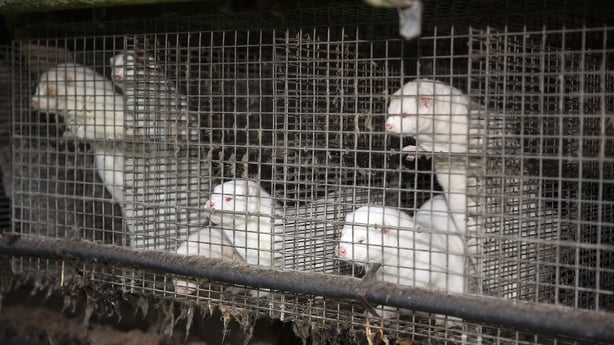
"The use of the vaccine, according to Russian scientists, can prevent the development of virus mutations," the statement said.
The agency added that animal-breeding facilities and private companies from countries including Greece, Poland, Austria, the United States, Canada and Singapore had expressed interest in Carnivak-Cov.
Military officials in Russia's second city Saint Petersburg announced earlier this week that army dogs would undergo mandatory vaccination before being deployed at airports and participating in nationwide World War II commemorations in May.

